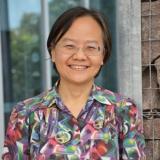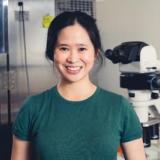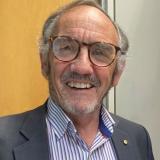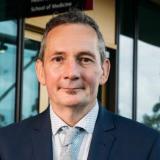The Australian Government is now in caretaker period. During this time, updates on this website will be published in accordance with the Guidance on Caretaker Conventions, until after the election.
The Research Committee fosters research across the spectrum of health and medical research, including the awarding of grants and providing research support.
The Research Committee (RC) covers the spectrum of health and medical research, including public health. It awards grants on the basis of scientific quality as judged by peer-review across the entire spectrum of health, medical and public health research. It also provides research support through a variety of mechanisms, including support for individual research projects, broad programs of research, training awards and fellowships and special research units.
Functions
The functions of RC, as set out in Section 35(2) of the NHMRC Act include all of the following:
- to advise and make recommendations to the Council on the application and monitoring of the Medical Research Endowment Account (MREA)
- to monitor the use of assistance provided from MREA
- to advise the Council on matters relating to medical research and public health research, including the quality and scope of such research in Australia
- such other functions as the Minister from time to time determines in writing after consulting the CEO
- any other functions conferred on the Committee by the NHMRC Act, the regulations or any other law.
Membership
Members will have demonstrated leadership and extensive experience in various fields of health and medical research. A member of Australian Health Ethics Committee (AHEC) also sits on RC – this is a requirement of the NHMRC Act.
Contact
Postal address
Research Committee Secretariat
NHMRC
GPO Box 1421
Canberra ACT 2601Email
Phone
Members of Research Committee
Past members
- Members of Research Committee 2021–2024 triennium
- Members of Research Committee 2018–2021 triennium
- Members of Research Committee 2015–2018 triennium
Committee members 2024–2027

Chair,
Professor
Anushka
Patel
Professor Anushka Patel is the CEO of The George Institute for Global Health and a Scientia Professor of Medicine at UNSW Sydney. She trained as a cardiologist and has led significant clinical research, including the ADVANCE trial on vascular disease prevention in diabetes. Her work has expanded into implementation science, focusing on cardiovascular polypills and digital technology innovations. Professor Patel was awarded the Gustav Nossal Medal in Global Health by the Australian Academy of Science in 2018. She currently holds an NHMRC Investigator Grant (L3; 2023–2027).
Having previously been a Staff Specialist in Cardiology at Royal Prince Alfred Hospital in Sydney (1999 to 2010), Dr Patel continued in part-time clinical practice until December 2022.
In her role as CEO of The George Institute, Dr Patel has responsibility for over 1,000 staff in 4 offices (Australia, China, India, UK) and a number of other global locations working remotely. Dr Patel has previously chaired the Australian Heart Foundation Research Committee, has been a Council member of the Australian Academy of Health & Medical Sciences and a member of the Australian NHMRC Research Committee, as well as its Health Research Impact Committee. Internationally, she is now or in the past has been Chair and/or a member of several advisory groups, including for WHO, Northwestern University, UK Joint Funders, Heart Health Research Center (China) and the International Centre for Diarrhoael Disease Research, Bangladesh (icddr,b). Across all leadership roles, Dr Patel’s contributions have been around building capacity, infrastructure and collaboration for research and impact.

Professor
Adrian
Barnett
Professor Adrian Barnett is a Professor of Statistics at Australian Centre for Health Services Innovation and Centre for Healthcare Transformation, Queensland University of Technology. He is the past President of the Statistical Society of Australia and the Association for Interdisciplinary Meta-research & Open Science.
Professor Barnett’s research interests include meta-research, research funding, and reducing research waste. He works on improving statistical practice and detecting research fraud to increase the value of health and medical research.
He is a fellow of the Academy of the Social Sciences in Australia.

Professor
Alex
Brown
Professor Alex Brown is the Professor of Indigenous Genomics at the Telethon Kids Institute and The Australian National University. He is an internationally leading Aboriginal clinician/researcher (Yuin Nation) who has worked his entire career in Aboriginal health in the provision of public health services, infectious diseases and chronic disease care, health care policy and research. He has family connections to Nowra, Wreck Bay and Wallaga Lake on the far south coast of NSW.
A former member of the Telethon Kids Institute Board and 2018 Scientific Review Panel, Alex plays a critical role working with the Institute leadership and Institute Science Team in shaping and sustaining the future of the Institute’s Indigenous research, leadership, partnerships and engagement with Indigenous communities, and training the next generation of Indigenous researchers.
Alex was the Aboriginal Health Equity Theme Leader at the South Australian Health and Medical Research Institute for ten years (2013–2023). He has been a Professor of Medicine at the University of Adelaide since 2019.
He has established 3 highly regarded research groups over the last 15 years and has built a research career spanning public health, quantitative clinical epidemiology, mixed-method health service research, qualitative research, and implementation science, with an increasing focus on novel clinical trials in cardiometabolic disease within Indigenous communities.
In 2012, Alex was awarded the Viertel Senior Medical Research Fellowship to further his research into the impacts of psychological determinants on cardiovascular disease in Aboriginal communities.
In March 2023 he was the first Indigenous scientist appointed to the CSIRO Board.

Professor
Anne
Chang
Professor Anne Chang is an established clinician researcher recognised for her contributions to clinical research in the areas of paediatric cough, bronchiectasis, evidence-based medicine and First Nations lung health. She has helped develop and apply evidence based medicine for respiratory illness in children, in Australia and internationally in the areas of paediatric cough, bronchiectasis and asthma. She has published more than 650 peer reviewed articles and book chapters, and led several national and international guidelines and point-of-care treatment protocols. Professor Chang has altered several paradigms related to children’s lung health. She was a continuous NHMRC Practitioner Fellow from 2004 to 2023 and currently holds a L3 fellowship. She works at the Queensland University of Technology, Queensland Children’s Hospital and Menzies School of Health Research.

Dr
Yee
Lian Chew
Dr Yee Lian Chew, ‘the worm lady’, is an NHMRC Emerging Leadership Fellow, who uses the ‘worm’ C. elegans – one millimetre long with only 300 neurons, yet 80% genetically identical to humans – to identify brain pathways that can be targeted for treatment of neurological conditions such as chronic pain.
An early/mid-career academic, Yee Lian earned her BSc (2010) and PhD (2015) from the University of Sydney. In 2015, she moved to Cambridge UK to study worms in colder weather, at the MRC Laboratory of Molecular Biology. She returned to Australia in 2019 as a teaching-research academic at the University of Wollongong and is currently a Mary Overton Senior Research Fellow at Flinders University.
Outside the joy of experiments, Yee Lian is a budding science communicator. She has given public lectures at National Science Week, contributed to a children’s outreach program at the Cambridge Science Festival, recorded a podcast, and filmed an Elevator Pitch for ABC Science. She was part of the 2021–2022 cohort of Superstars of STEM, a program run by Science & Technology Australia to promote the profile of women and non-binary STEM professionals.
The former (2021) Chair of the EMCR Forum Executive supported by the Australian Academy of Science, Yee Lian also aims to promote equity, diversity and inclusion in academia by removing barriers to retention for minoritised groups.
In 2021, she was awarded a SA Young Tall Poppy award in recognition of her science communication and research profile. She served on the NHMRC Research Committee for the 2021–2024 Triennium.

Professor
Julian
Grant
Professor Julian Grant is a registered nurse and Professor of Nursing working on Wiradjuri land at Charles Sturt University, where she holds the role of Associate Dean Research for the Faculty of Science and Health. Having worked as a child and family health nurse across rural, remote and metropolitan Australia for 18 years her research focusses on addressing health inequities experienced by children and families as they relate to race, gender, geography, and child abuse or neglect.
Professor Grant’s research explores and critiques individual and systemic barriers within the nursing and interdisciplinary workforce tasked with supporting health and wellbeing. This has led to both significant change and advanced knowledge about:
- how care is defined and delivered for children and families, especially those experiencing health inequities
- decolonising policy and practice with children and families from First Australian, refugee and migrant backgrounds
- interdisciplinary education for professionals working with children and families.
Professor Grant served as a member of the NHMRC Health Research Impact Committee from 2021–2024

Professor
Alistair
Forrest
Professor Alistair Forrest is Associate Director (Scientific Strategy) and Head of the Systems Biology and Genomics Laboratory at the Harry Perkins Institute of Medical Research, The University of Western Australia. He is supported by an NHMRC Investigator Grant (L2) and is an elected Fellow of the Australian Academy of Health and Medical Sciences.
An expert in genomics and bioinformatics, Professor Forrest received a Eureka Prize for Excellence in International Scientific Collaboration for coordinating a consortium of more than 250 researchers from 20 countries focused on mapping genomic elements while based at RIKEN Yokohama, Japan.
At the Perkins, he leads the Western Australian Cancer Single Cell Genomics Consortium, bringing together over 100 basic scientists and clinicians to tackle poor-prognosis cancers such as ovarian cancer and mesothelioma. His research breaks new ground in mapping cell-to-cell communication networks to understand how the tumour microenvironment influences cancer progression.

Professor
Doug
Hilton
AO
Dr Doug Hilton AO commenced as CSIRO Chief Executive on September 29, 2023.
Dr Hilton is a molecular and cellular biologist and previously Director of the Walter and Eliza Hall Institute of Medical Research (WEHI). At WEHI, his medical research focused on understanding how blood cells communicate and using this knowledge to improve disease treatments. He and his team held more than 20 patents and translated their research through collaboration with venture capitalists and the biopharmaceutical industry. Through an honorary appointment in the Zoology Department at University of Melbourne, he also studies a family of tiny day-flying moths involved in the pollination of Australian plants.
Beyond research, Dr Hilton has emphasised the importance of strong institutional cultures, and furthered diversity in science including as a member of the Champion of Change Coalition and a board member of Australians Investing in Women.

Professor
Carol
Hodgson
Professor Carol Hodgson is Executive Director of Monash Partners Academic Health Science Centre, Head of the Division of Clinical Trials and Cohort Studies in the School of Public Health and Preventive Medicine, and Deputy Director of the Australian and New Zealand Intensive Care Research Centre, Monash University.
She is a clinical trialist with expertise in rehabilitation, oxygen therapy, invasive life support and coordination of care, with a special interest in long-term outcomes of critically ill patients.
She has held NHMRC or Heart Foundation funding throughout her career, currently with an L2 Investigator Grant (2025–2029), and she sits on the NHMRC Research Committee (2025–2027).
She is an honorary Specialist Physiotherapist in Intensive Care at The Alfred Hospital, Melbourne, Australia.
She is a Fellow of the Australian Academy of Health and Medical Sciences and of the Australian College of Physiotherapists.

Professor
Frances
Kay-Lambkin
Professor Frances Kay-Lambkin commenced as Institute Director of the Hunter Medical Research Institute in May 2022. Prior to this she was an NHMRC Leadership Fellow at the School of Medicine and Public Health, College of Health and Wellbeing, at The University of Newcastle. She is a registered Psychologist and has previously held a number of concurrent leadership roles including interim Pro Vice-Chancellor of Research and Innovation at the University of Newcastle and Director for Technology and Translation at the NHMRC Centre for Research Excellence. She also served as the University of Newcastle's COVID-19 Response Lead throughout 2021.
Professor Kay-Lambkin’s research program has been instrumental in demonstrating the transformative impact of digital technologies in bringing integrated treatments to the point of care for people with mental health and substance use problems. Over the past 15 years she has worked in a clinical research capacity with people experiencing a range of mental health and alcohol and other drug use problems, including: psychotic disorders, depression, personality disorders and anxiety.
Professor Kay-Lambkin has received national and international recognition for her work to improve mental health and addiction outcomes, including recognition though NHMRCs 2018 Ten of the Best Research Projects for her work '[Treating binge drinking and depression in young people via the internet' and the international Fred Yates Award for significant contributions to addiction research.

Ms
Debra
Langridge
Member-in-Common with Consumer Advisory Group
Deb has served in the public health and prevention space at all levels of government – Federal, State and Local – and not for profit sectors to contribute to the health and well-being of communities. She has worked to capture the voices of all parts of community including access and inclusion, Aboriginal and Torres Strait Islander people, culturally and linguistically diverse communities, children, and young people, those with mental health challenges, and those connected with health and community services. Deb has led project teams focusing on including the voices of those who are impacted by services, programs, and research at all levels of government. She has always worked connecting institutions, organisations, government, and community with a well-being focus, and was a representative on the WA Sustainable Health Review with this in mind.
Deb’s current role leading the Western Australian Health Translation Network’s Consumer and Community Involvement Program (CCIProgram) connects researchers in WA Universities, Medical Research Institutes, Government, Health Service Providers and Funders with people with lived experience to support and encourage best practice research. She is the current Chair of the Australian Health Research Alliance (AHRA) Consumer and Community Involvement Committee and liaises closely with WA Health’s Office of Medical Research and Innovation who oversee WA Future Health Research and Innovation Fund initiatives. Deb has served as a member of the NHMRC-CHF Consumer Statement Advisory Committee and is a member of the newly formed NHMRC-MRFF Consumer Advisory Network. In WA, Deb brings those with a focus on consumer and community involvement (CCI) in the research and health services sector together by chairing the WA CCI Community of Practice.
Deb has a personal lived experience of multiple disease conditions, is passionate about ensuring research translation can impact policy, practice, and the wellbeing of communities, and enjoys bringing people together to make a difference.

Professor
Sarah
Larkins
Dr Sarah Larkins is an experienced research leader, academic general practitioner and Professor of Health Systems Strengthening in the College of Medicine and Dentistry, James Cook University. Sarah has particular skills and experience in health services and workforce research and in Aboriginal and Torres Strait Islander health research and is an internationally recognised expert in social accountability in health professional education. Sarah is also a current member of the NHMRC Research Committee (2022–24) and Co-Director of the Anton Breinl Research Centre for Health Systems Strengthening, a centre of the Australian Institute of Tropical Health and Medicine.
To date, Sarah has over 170 published peer-reviewed journal articles and several book chapters, with an h-index of 35, more than 4.100 citations and well over $97 million in grant funding. This includes seven current NHMRC/MRFF grants as a CI (3 as CI A), investigating participatory strategies to strengthen health services and recent grants from DESE and DFAT . She currently supervises 14 students at HDR level with 21 PhD completions. Other recent funding is from the CRC-NA, the Commonwealth Department of Health and the Department of Education.
Sarah's particular focus is on collaborating to improve equity in health care services for underserved populations, particularly rural, remote, Indigenous and tropical populations, and on training a health workforce with appropriate knowledge, attitudes and skills for this purpose. She is a past co-chair, Primary and Chronic Care Panel and Guideline Leadership Group Member of the National Living Evidence Guidelines for COVID-19, Director, Townsville Mackay Medicare Local and past member of the World Health Organisation Technical Working Group on Health Workforce Education Assessment Tools and the National Technical Advisory Group for Health Workforce Australia.
She currently serves as the Convenor, Clinical Leadership Group for the NHMRC-recognised Tropical Australian Academic Health Centre, and serves on Research Australia University Round Table and IRU Research Committee.

Professor
James
McCluskey
James McCluskey (AO FAA FAAHMS) was a Visiting Scientist at the US National Institutes of Health (1983–87) before undertaking senior positions at Monash University, Flinders University and the Australian Red Cross Blood Service. A physician trained in Western Australia, his research on immune recognition has attracted a number of prizes and acknowledgment as a HiCi author of more than 350 manuscripts. He was a Clarivate HiCi author (top 1% field) in the discipline of immunology between 2018–2023. He was instrumental in establishing the Peter Doherty Institute for Infection and Immunity; was director of 10 independent research institutes and CRCs; and led the creation of the Atlantic Fellows for Social Equity program funded by an AUD$85 million philanthropic grant. He has worked at The University of Melbourne for 28 years, as Deputy Vice Chancellor Research (2011–2023), Acting Provost (2022) and Assistant VC (2023–). In 2024, he received a Melbourne Achiever Award from the Committee for Melbourne and was awarded the University of Melbourne Gold Medal for distinguished service.

Associate Professor
Odette
Pearson
Professor Odette Pearson, is a Kuku Yalanji/Torres Strait Islander woman, Co-Leading the Wardliparingga Aboriginal Health Equity Theme at SAHMRI and holds the title of Adjunct Professor with the School of Medicine at the University of Adelaide. Professor Pearson research experience is in primary health care workforce and systems and their linkages with health and social services, conceptual development of Aboriginal specific well-being frameworks and indicators, and using social and epidemiological research to develop policy for prevention and health management. With strong community and cross sector engagement her research activity focuses on how to achieve equity through improvements in health and social system responses to better meet the needs of Aboriginal and Torres Strait Islander peoples.

Professor
Paul
Scuffham
Member-in-Common with Public Health and Health Systems Committee
Professor Scuffham’s research is focussed on identifying the value for money of healthcare interventions, elicitation of preferences from patients and the public, and methods of priority setting. He applies his research interests across the breadth of cardiac conditions, genomics, digital health, vaccines and more.
He founded the Centre for Applied Health Economics and was Director of the former Menzies Health Institute Queensland, Griffith University. In his professional society, he was the inaugural President of the Australian Chapter of the International Society for Pharmacoeconomics and Outcomes Research, and recent Chair of the Asia Consortium.
He is a Fellow, Board member, and Chair of the Policy Advisory Committee of the Australian Academy of Health & Medical Sciences.

Associate Professor
Viet
Tran
Member-in-Common with Australian Health Ethics Committee
Associate Professor Viet Tran is an emergency physician, researcher, educator and strong patient advocate. He is founder and director of the Tasmanian Emergency Medicine Research Institute, chair of the Tasmanian Emergency Departments Network, chair of the Australasian College for Emergency Medicine Research Advisory Committee and Discipline lead for Emergency Medicine at the University of Tasmania. Associate Professor Tran has directly cared for over 30,000 patients, striving to deliver excellence in patient care through an evidence-based, patient-centred and data-driven approach. His research, education and advocacy seek to impact even more people by empowering patients, clinicians and leaders to understand how they can be a positive influence at an individual level, systems level and everywhere in between.

Professor
Andrew
Wilks
Member-in-Common with Industry, Philanthropy and Commercialisation Committee
Andrew Wilks is a molecular biologist and cancer cell biologist. Working at the Ludwig Institute for Cancer Research (Melbourne) from 1988 to 1998, he led the Growth Regulation Laboratory. He and his laboratory made transformative discoveries in the signal transduction field as well as in neurogenesis and angiogenesis. Wilks has completed a rare 'trifecta' – discovering and patenting a number of important drug discovery targets (viz. JAK1 and JAK2) and defining their role(s) in cytokine signalling; founding one of Australia’s most successful biotech companies, Cytopia; and co‐inventing and leading the team that delivered the therapeutic JAK inhibitor, momelotinib.